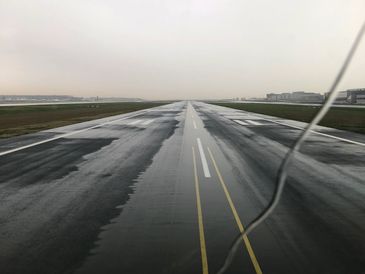SAVE $100 by purchasing block times of 10 hours at a time
Instrument Rating

Master the Art of All-Weather Flying
Program Overview
Enhance your flying capabilities with our comprehensive Part 61 Instrument Rating program. Learn to
fly safely in instrument meteorological conditions (IMC) and expand your flying opportunities while
dramatically improving your overall piloting skills.
Training Approach
This Part 61 program
Master the Art of All-Weather Flying
Program Overview
Enhance your flying capabilities with our comprehensive Part 61 Instrument Rating program. Learn to
fly safely in instrument meteorological conditions (IMC) and expand your flying opportunities while
dramatically improving your overall piloting skills.
Training Approach
This Part 61 program emphasizes practical instrument flying skills through intensive simulator and
aircraft training. I focus on real-world IFR operations and develop the precision and confidence needed
for instrument flight.
Key Benefits:
All-weather flying capability
Enhanced safety margins in all conditions
Access to more airports and airspace
Foundation for professional flying
Improved precision and aircraft control
Greater flight planning flexibility
Timeline & Requirements
Total Flight Hours: 40 hours instrument time minimum
Typical Timeline: 3-5 months with consistent training
Training Schedule: Flexible - ground and flight training coordination
Required Flight Hours Breakdown:
40 hours instrument flight time
15 hours dual instruction with CFII
3 hours cross-country instrument flying
3 hours within 60 days of checkride
50 hours cross-country PIC (prerequisite)
What You'll Learn
Ground School Topics:
Instrument Flight Rules (IFR) and regulations
Weather Theory and interpretation for IFR
Navigation Systems (GPS, VOR, DME)
Instrument Approach Procedures (IAP)
Airspace and Air Traffic Control procedures
Electronic Flight Displays and automation
Crew Resource Management for single-pilot IFR
Decision Making in instrument conditions
Flight Training Skills:
Basic Instrument Flight: Attitude instrument flying
Navigation: VOR, GPS, and ADF navigation
Approaches: Precision and non-precision approaches
Holds: Holding patterns and procedures
Departures: Standard instrument departures (SID)
Arrivals: Standard terminal arrivals (STAR)
Emergencies: Partial panel and system failures
Communication: IFR phraseology and procedures
Training Phases
Phase 1: Basic Instrument Skills (Hours 1-10)
Attitude instrument flying
Basic maneuvers under the hood
VOR and GPS navigation
Radio communication procedures
Instrument approach introduction
Phase 2: Approach Procedures (Hours 11-20)
ILS precision approaches
RNAV (GPS) approaches
VOR and LOC approaches
Missed approach procedures
Circling approaches
Phase 3: Advanced Operations (Hours 21-30)
Holding patterns and procedures
Departure procedures (SID)
En route IFR operations
Actual instrument conditions
Complex approach procedures
Phase 4: Checkride Preparation (Hours 31-40)
Cross-country IFR flights
Partial panel operations
Emergency procedures
Mock practical examinations
Oral exam preparation
Prerequisites
Basic Requirements:
Age: Any age (if holding pilot certificate)
Medical Certificate: Valid medical certificate
English Proficiency: Read, speak, write, and understand English
Pilot Certificate: Hold Private Pilot License or higher
Flight Hours: 50 hours cross-country PIC
Ground School: Pass FAA Instrument Rating knowledge test (70% or higher)
Flight Experience Requirements:
Private Pilot License
50 hours cross-country pilot-in-command
Current flight review
Medical certificate appropriate to privileges
What's Included:
Instrument flight instruction time
Ground school instruction
Chart and approach plate training
Checkride preparation
Copyright © 2025 Space City Flyers - All Rights Reserved.
This website uses cookies.
We use cookies to analyze website traffic and optimize your website experience. By accepting our use of cookies, your data will be aggregated with all other user data.